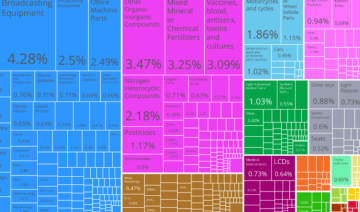 Maria Haro Sly in Phenomenal World:
Maria Haro Sly in Phenomenal World:
Since the early 2000s, Argentine development finance has undergone a profound transformation. Amid cyclical debt defaults and endless negotiations with Western investors and the IMF, Chinese overseas investment loans have slowly crept to the fore. Between 2007 and 2020, Argentina received $10.65 billion in investment from Chinese companies, concentrated in the energy, mining, and financial sectors. Today, Argentina is the fourth-largest recipient of Chinese loans in the region, securing around $17 billion in total. These loans have primarily supported transportation infrastructure, energy projects, and the enhancement of Argentine exports. In 2022, President Alberto Fernández agreed to open financing lines with China totaling nearly $23 billion through the Strategic Dialogue for Economic Cooperation and Coordination (DECCE) and Belt and Road Initiative, though the latter is still pending activation.
It’s within this changing borrowing landscape that Javier Milei, the self-defined “first true free-trade reformer and libertarian president in the history of the world,” has been elected. Milei won the ballot against the former Minister of Finance, Sergio Massa, in a country with 140 percent inflation rate and plummeting exports thanks to a drought that resulted in a $19 billion loss, nearly 3 percent of Argentina’s GDP.
Economically, Milei raises a sense of déjà vu reminiscent of neoliberal figures from the 1970s, 1990s, and the Macri era. His political party and cabinet are drawn from earlier administrations, with figures like Ricardo Bussi (son of the dictator and governor of the Tucuman Province), and members from Menem’s administration, including Menem’s nephew, Martín Menem, as president of the Senate. Notably, a significant number of former ministers from Macri’s government—Patricia Bullrich, Luis Caputo, Santiago Bausili, among others—have also joined Milei’s cabinet.
More here.
